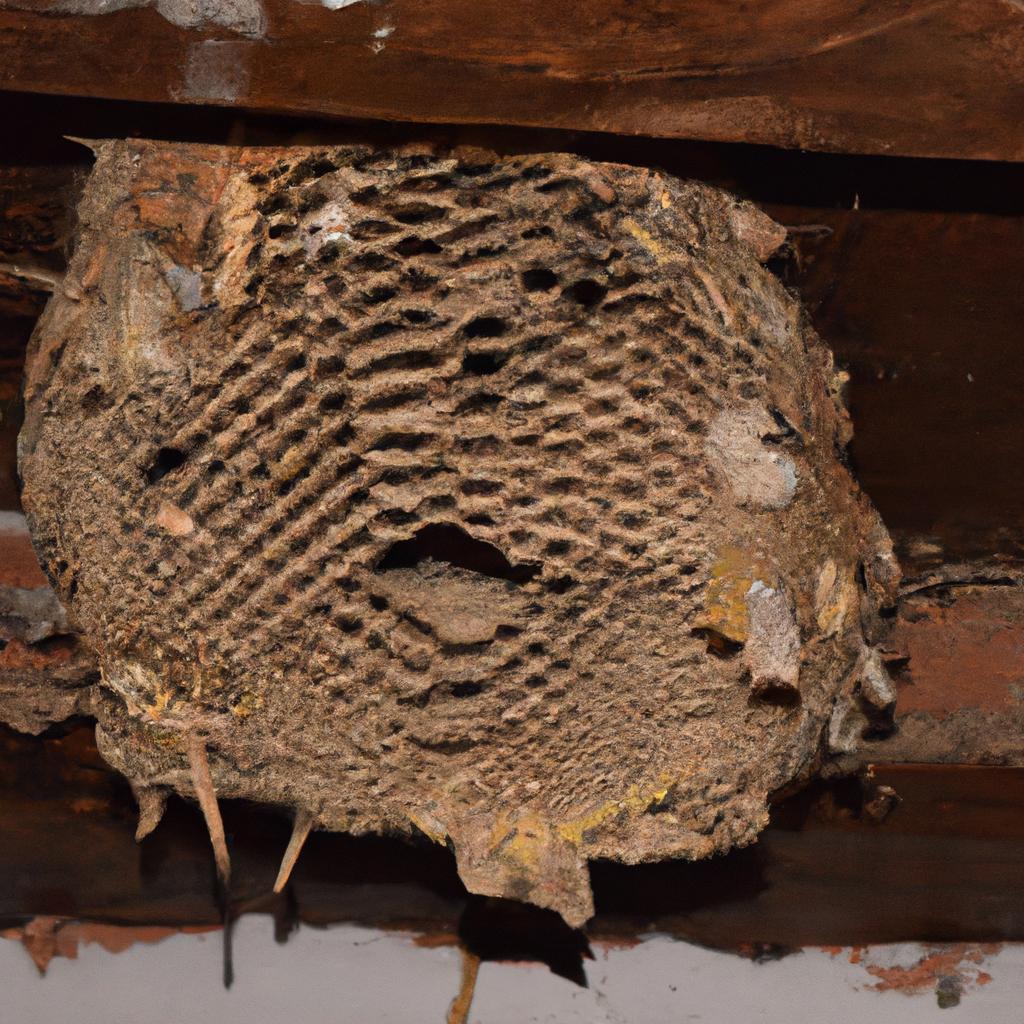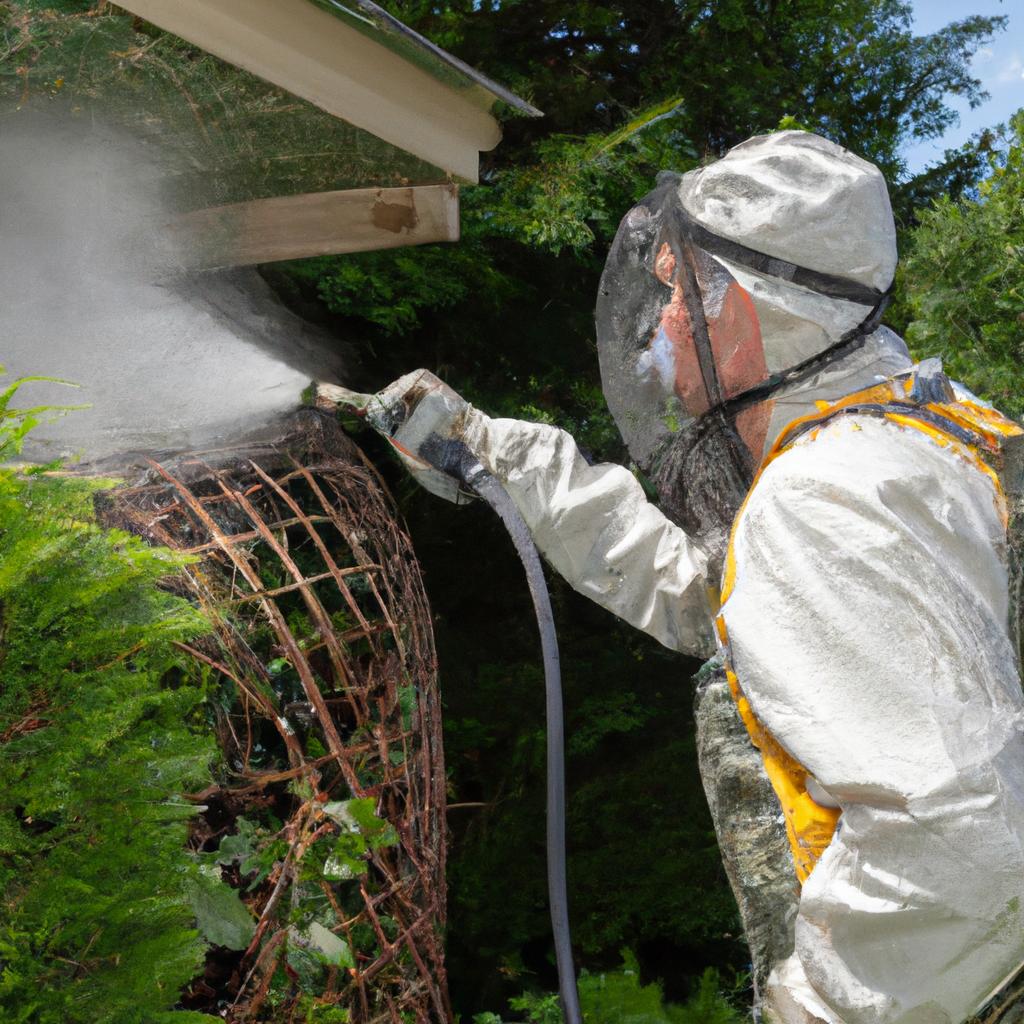Wasps are one of the most common pests that homeowners have to deal with. They are attracted to the warmth and shelter of our homes and can easily find their way inside. While they may seem harmless, wasps can pose a significant threat to your health and property. Understanding how long wasps can live in a house is crucial in keeping your home safe and comfortable.
Lifespan of Wasps

The lifespan of a wasp can vary depending on the species and environmental factors. Most wasps have a relatively short lifespan, with the average lifespan being around 2-3 weeks. However, some species, such as the queen wasp, can live for several months. The queen wasp is responsible for starting new colonies and can lay up to 100 eggs each day. The worker wasps, which are responsible for building and maintaining the nest, have a shorter lifespan of around 2-3 weeks.
The lifespan of a wasp can also be affected by environmental factors such as temperature, food availability, and habitat. In warmer temperatures, wasps tend to have a shorter lifespan, while in cooler temperatures, their lifespan can be extended. Wasps require a source of protein to survive, and their lifespan can be shortened if they do not have access to adequate food. Additionally, wasps prefer to build their nests in protected areas such as attics, eaves, and wall voids, which can provide them with the necessary shelter to survive longer.
In the next section, we will discuss how wasps get inside houses and how they survive in the indoor environment.
Survival in Houses

Wasps can easily find their way into your home through cracks, gaps, and openings. They are attracted to the warmth and shelter of our homes, making attics, basements, and wall voids ideal locations for their nests. Once inside, wasps can survive for an extended period, provided they have access to food and water.
One of the biggest challenges with having wasps in your home is that they can become aggressive and sting if they feel threatened. This can be especially dangerous for those who are allergic to wasp stings. Additionally, wasps can cause property damage by building their nests inside walls and ceilings, which can weaken the structure of your home over time.
In the next section, we will discuss the various health risks posed by wasp stings and the property damage caused by wasps.
Survival in Houses
Once inside a house, wasps can survive for an extended period, provided they have access to food and water. They can feed on sugary substances such as fruit, juice, and soda, as well as proteins such as meat and pet food. Wasps can also find water sources in our homes, such as leaky pipes and standing water.
One of the reasons wasps can survive in our homes is that the indoor environment can mimic their natural habitat. Wasps prefer to build their nests in protected areas, such as attics and wall voids, which can provide them with the necessary shelter to survive longer. Additionally, the warmth of our homes can extend their lifespan, allowing them to survive beyond their natural lifespan.
However, having wasps in your home can pose significant risks to your health and property.
Risks of Having Wasps in the House
Health risks posed by wasp stings
Wasps can be dangerous to humans, especially those who are allergic to their venom. Wasps can sting multiple times, and their stings can cause severe pain, swelling, and itching. In some cases, wasp stings can cause a severe allergic reaction known as anaphylaxis, which can be life-threatening.
Children and pets are also at risk of being stung by wasps, especially if they accidentally disturb a nest. It is essential to be vigilant if you suspect you have a wasp infestation in your home and take necessary precautions to avoid being stung.
Property damage caused by wasps
Wasps can cause significant damage to your home, particularly if they build their nests inside walls and ceilings. Over time, the weight of the nest can weaken the structure of your home, leading to costly repairs. Additionally, wasps can chew through drywall, insulation, and electrical wires, which can create a fire hazard.
In the next section, we will discuss how to get rid of wasps safely and effectively.
Getting Rid of Wasps
If you have a wasp infestation in your home, it is essential to take steps to remove them safely and prevent them from returning. The first step is to identify the location of the nest. Wasps build their nests in protected areas such as attics, wall voids, and eaves. Once you have located the nest, you can take steps to remove it safely.
If the nest is small, you can try using a wasp spray to kill the wasps. However, if the nest is large or located in a hard-to-reach area, it is best to call a professional exterminator. They have the proper equipment and training to remove the nest safely and effectively.
To prevent wasps from entering your home, you can take several preventative measures. Seal any cracks or gaps in your home’s exterior to prevent wasps from getting inside. Keep your garbage cans sealed, and avoid leaving food out, as this can attract wasps. Additionally, keep your outdoor areas clean and free of debris, as wasps are attracted to dark, damp areas.
Conclusion
In conclusion, wasps can live in a house for an extended period, depending on the species and environmental factors. While they may seem harmless, wasps can pose a significant threat to your health and property. It is essential to take steps to prevent wasps from entering your home and to remove any nests safely and effectively.
By sealing cracks and gaps in your home’s exterior, keeping your outdoor areas clean, and avoiding leaving food out, you can prevent wasps from entering your home. If you have a wasp infestation, it is best to call a professional exterminator to remove the nest safely.
Remember, BeeKeepinglove.com is always here to help you with any beekeeping or pest control needs you may have. Stay safe and bee happy!
